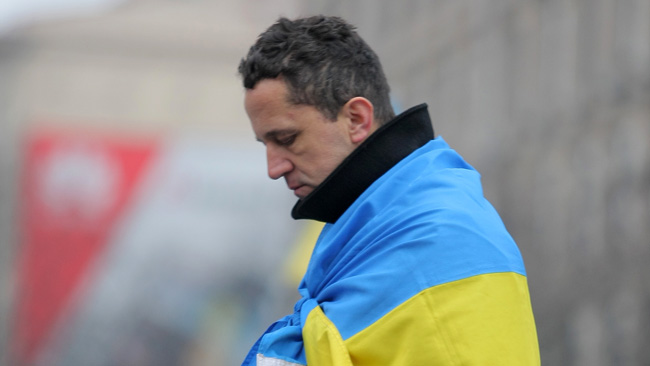Heroism is efforts of loners
We live in a time when dishonesty has become commonplace, and the norm has become the exception
Soviet agents killed the first leader of the Organization of Ukrainian Nationalists Yevhen Konovalets on May 23, 1938. This date is observed, informally and mostly in western Ukraine, as the Heroes’ Day. But despite the fact that the holiday is unofficial, solemn events held on the occasion were attended by officials, including head of the Lviv Oblast State Administration Oleh Syniutka and Lviv Mayor Andrii Sadovy. While some journalists and politicians are engaging in rhetoric about the need to combat “hate speech,” such holidays are designed to compensate for it by emphasizing the importance of national remembrance and honoring our heroes. On the other hand, we should also give a thought to another issue: would we need to glorify certain individuals had our society had normal development conditions instead of permanent stress, where “breakthroughs” require not just decent daily work, but rather exceptional sacrifices?
The reason for it is not only the fact that we have a permanent external enemy, but also our internal inability to organize the defense. That is why we would do well by mentioning unrecognized heroes on this day. Indeed, we still have plenty of volunteers not only not recognized as heroes, but even lacking the status of the anti-terrorist operation (ATO) veterans, although they have been at the front for over a year. This applies even to some rank-and-file soldiers of the Ukrainian Armed Forces. Meanwhile, soldiers of the National Guard often receive this status after one-month stay in the ATO area (and not necessarily in the immediate combat zone even). But then, the National Guardsmen are blameless compared to officials who commonly spend a few days at the front to get listed as participants of the ATO, while former commander-in-chief of the Ukrainian border corps Mykola Lytvyn became a war veteran after a tour of Kosovo.

Photo by Artem SLIPACHUK, The Day
So, while celebrating yet another holiday, it is worth remembering that formal decorations hide profound contradictions in our case. And the real heroes are usually loners, who sometimes were not even listened to. It is only on symbolic dates that we see people remembering Georgy Gongadze, who was killed by Yurii Kravchenko’s thugs and would have turned 47 these days, on May 21. This superficial remembrance has been created jointly by the authorities and the journalists who never knew, have forgotten or have betrayed their colleague. Together with Oleksii Podolsky, who survived a similar abduction and beating, he has become a symbol of the innocent victims of the Kuchma system. Few now remember the late journalist Ihor Aleksandrov either, who was one of the first to challenge the criminal system in the Donbas. By the way, the government has still not dared to award him the posthumous title of Hero of Ukraine. Almost no one remembers still-living judge Volodymyr Vasylenko, who was the first in the former Soviet Union to launch a criminal case against the incumbent president, Leonid Kuchma, and always adhered to his principles while serving as a judge, which actually ought to be the norm. But the fact of the matter is that we live in a time when the norm has become the exception, and sometimes even a sign of heroic virtue. This is the root cause of the ongoing change of goalposts, which ultimately devalues the very notion of true heroism and its difference from artificial glorification.
“WHILE ESTABLISHING HOLIDAYS, WE NEED TO LOOK FOR CONSOLIDATION AND TRUE UNDERSTANDING”
Vladyslav HRYNEVYCH, historian:
“We need consolidating dates which have to be established with full knowledge of historical realities. So, I am not sure that we have to artificially copy and paste all that feast calendar that existed in the diaspora and the Ukrainian Insurgent Army. If you take the Day of the Heavenly Hundred, they are heroes, no question about it, and on that day, we can honor all those who died for Ukraine, regardless of our political preferences or historical conditions. Our society needs a constructive discussion of this issue. Things like the dates of celebration with similar names and claims of heroism should not be decided behind the scenes. As for the accumulation of holidays, perhaps it is worth pausing the process and taking a breath. Note, however, that this does not mean that we should not honor heroes. This means that while establishing holidays, we need to look for consolidation and true understanding, not mechanically accumulate holidays. Therefore, the guiding principle in this regard should be caution and deep thought on the issues. Sometimes, instead of explaining to people the significance of historical events, we just pit them against each other.”
Newspaper output №:
№32, (2016)Section
Day After Day





